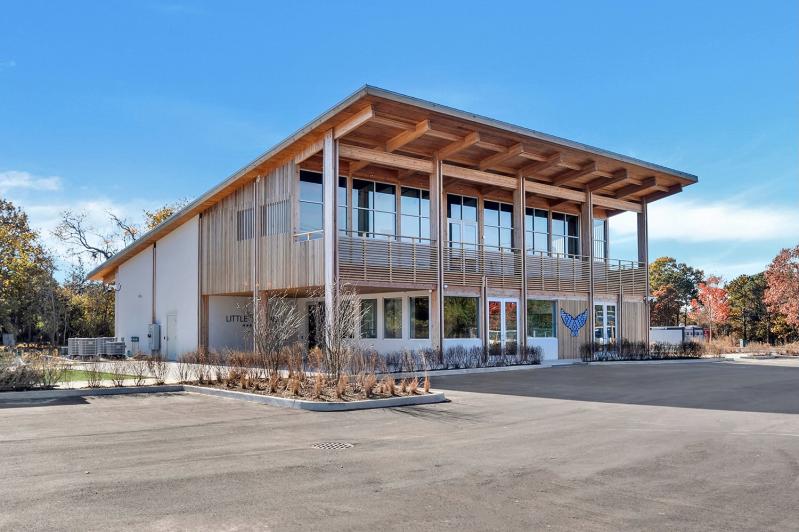The Shinnecock Indian Nation’s official cannabis dispensary, Little Beach Harvest, is now open for business, just in time for the Indigenous harvest holiday known as Nunnowa, which the tribe celebrates each year on Nov. 16.
The tribe cut the ribbon yesterday on the 5,000-square-foot dispensary, also holding a traditional gift-giving ceremony in which Shinnecock officials exchanged gifts such as wampum and blankets with representatives of other Indigenous communities who had traveled from other parts of the northeastern United States for the occasion.
“It’s a major achievement. This is something that Long Island is in need of,” said Chenae Bullock, the managing director of Little Beach Harvest, in describing the region’s first tax-free cannabis dispensary, located on the Shinnecock territory at 56 Montauk Highway in Southampton.
But for the Shinnecocks, the dispensary is about much more than facilitating access to cannabis products that are tested to line up with industry standards for safety and quality.
“People are really advocating for cannabis, but more so, it’s something that’s a real economic pillar for sustainability within the Shinnecock Nation,” Ms. Bullock said.
Bryan Polite, chairman of the Shinnecock Tribal Council, said that the dispensary is just one part of an economic strategy that also includes the electronic monuments on Sunrise Highway, which are no longer tied up in the red tape of litigation; a travel plaza and gas station, with a groundbreaking scheduled for the spring, and a potential casino.
“We would like to become economically self-sufficient and provide resources necessary for a social safety net to improve our quality of life,” Mr. Polite said. “We also need resources to fight the multiple battles we are constantly engaged in with the state in trying to reclaim our homelands.”
The facility will be staffed by employees who are Shinnecock tribal members, and who underwent six months of training leading up to yesterday’s opening.
Purchases will not be subject to the 4-percent sales tax that New York State-licensed dispensaries are required to charge, but there will be a “community fee” of a similar amount that goes to directly support programs and services for the Shinnecock Nation.
Besides the economic benefits, “the immediate impact is cultural pride. A project of this size has never been done,” Mr. Polite said. “It won’t be your typical dispensary. It will really be a showcase — a window into our culture” that will also include artwork and other Indigenous-created products and educational materials and programs.
Inside the facility is a mural based on photographs by Rebekah Wise and Ferdinand Lee, members of the tribe. The interior was designed with calming colors drawn from the natural environment.
“It has a beautiful sales floor that encompasses all of the diverse brands that we carry that are in line with our mission, which is sharing the bounty,” Ms. Bullock said. “When you walk in, you automatically have this positive, uplifting feel.”
Not only will Little Beach Harvest sell its own branded cannabis products, but customers can also choose from brands created by other Indigenous communities.
“We’re helping launch independent, Native-owned tribal brands that don’t always get to make the mainstream market because they don’t have resources, means, and support,” Ms. Bullock said. “There’s an opportunity for us to help other tribes stand up their cannabis operations the way we did. We’ll create a book of best practices on how to navigate an industry that is challenging when you don’t hold a license.”
Mr. Polite said the tribe is grateful for the significant assistance it received from Gary Santos and Sean Power from PowerFund Holdings, which has been the Shinnecocks’ financial partner in the development process since May after a previous agreement with Tilt Holdings ended.
Ms. Bullock said there were “a lot of things that obviously required some patience all around,” including a moratorium on building during the early days of the Covid-19 pandemic.
“But when you have patience you can persevere, and that’s what my job is as a woman leader, a young Shinnecock woman leader who was raised by a lot of strong Shinnecock women guiding me through our sovereign laws,” she said. “We have to maneuver in a certain way because it’s a highly regulated business that doesn’t include us.”




